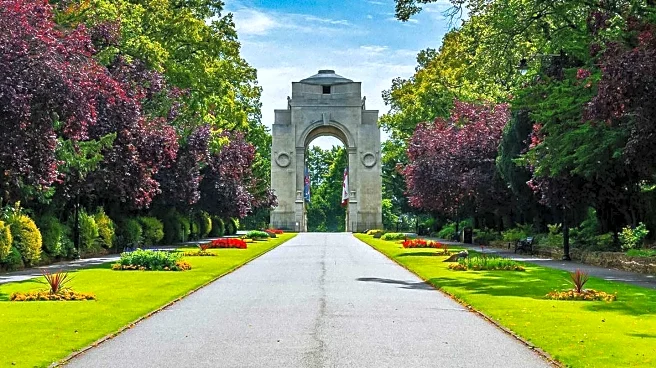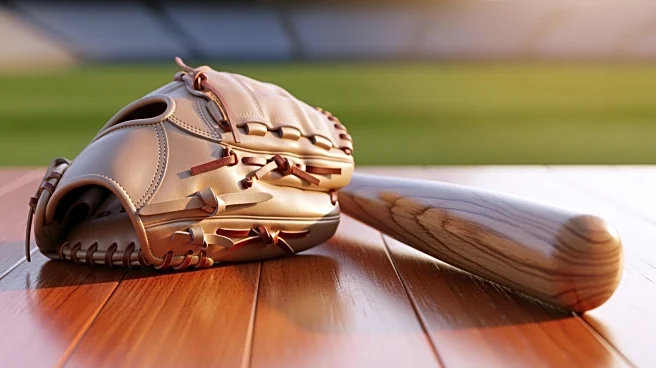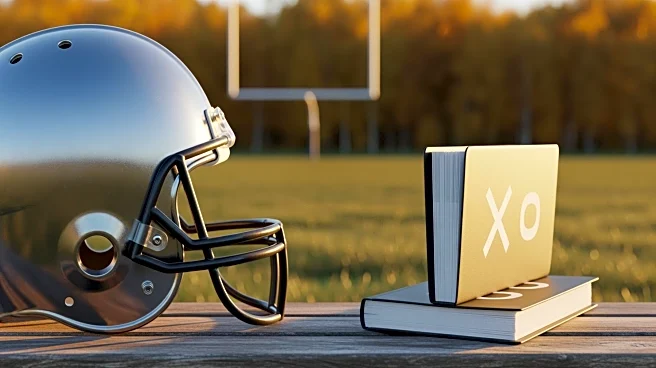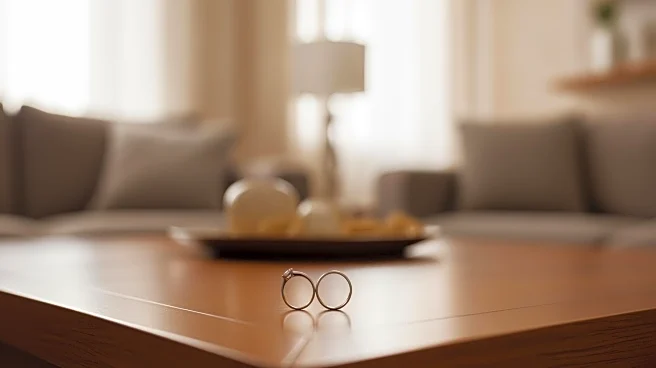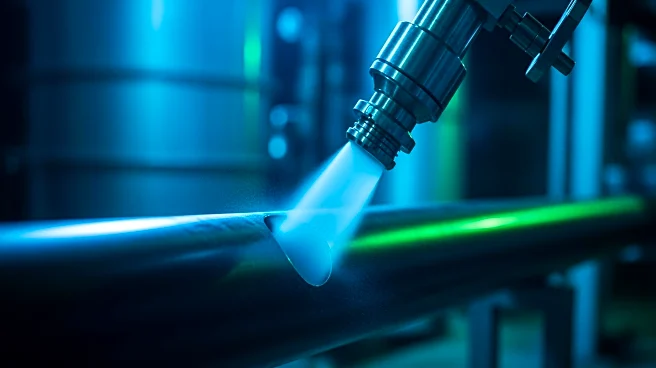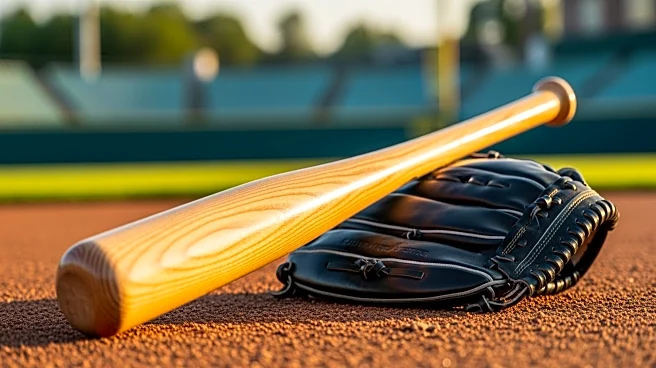What's Happening?
In Clevedon, North Somerset, a family has organized a display of restored military vehicles to commemorate the anniversary of VJ Day, marking the end of World War II in the Pacific. The event took place at the site of a former railway station, a historical departure point for soldiers during the war. James Shopland, who owns a collection of these vehicles, has dedicated himself to restoring them as a tribute to the veterans who are increasingly passing away. The display included music from the 1940s and attendees dressed in period attire, creating an atmosphere reminiscent of the era. James Shopland described the restoration process as an 'obsession,' aiming to preserve the history and experiences of those who served. His father, David Shopland, who was a teenager on VJ Day, recalled the somber mood of the original celebrations, contrasting it with the more jubilant VE Day earlier that year.
Why It's Important?
This event underscores the importance of preserving historical artifacts as a means of honoring and remembering the sacrifices made by veterans. As the number of living World War II veterans dwindles, such initiatives help keep their stories and experiences alive for future generations. The restored vehicles serve as tangible reminders of the past, offering educational opportunities and fostering a deeper understanding of history. This commemoration also highlights the broader societal need to recognize and respect the contributions of military personnel, ensuring that their legacies are not forgotten. The Shopland family's efforts reflect a growing interest in historical preservation and the role it plays in cultural memory.
What's Next?
The continued restoration and display of military vehicles could inspire similar initiatives across the country, encouraging communities to engage with their local history. As interest in historical preservation grows, there may be increased support for museums and educational programs dedicated to World War II and other significant historical events. Additionally, such commemorations could lead to more public discussions about the impact of war and the importance of peace, potentially influencing future policy decisions regarding veterans' affairs and historical education.
Beyond the Headlines
The restoration of war vehicles raises questions about the ethical considerations of war memorabilia and the balance between honoring history and glorifying conflict. It also prompts reflection on how societies choose to remember and interpret past events, influencing cultural narratives and identity. The Shopland family's project highlights the personal connections individuals have to history and the ways in which these connections can drive preservation efforts.
